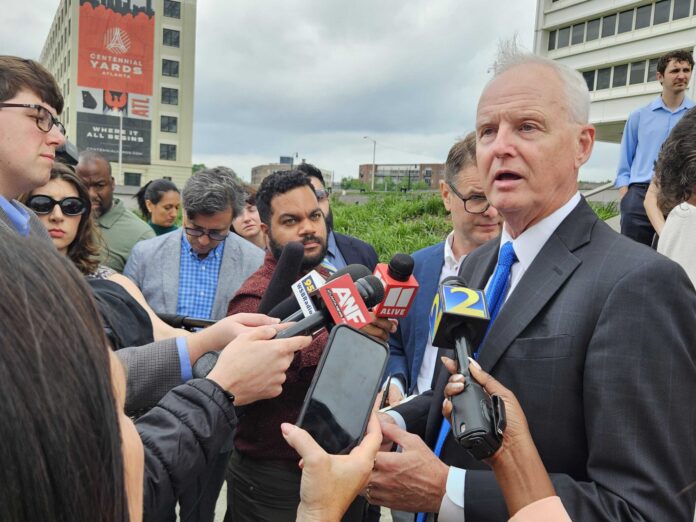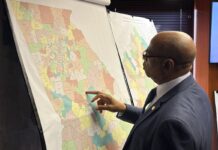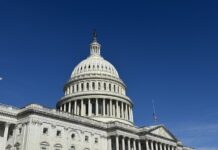
(Georgia Recorder) — A federal judge in Atlanta is set to rule on a complaint filed by a group of 133 international college students who say the administration of President Donald Trump illegally and capriciously tried to take away their ability to study in the United States.
Following a Thursday hearing, U.S. District Court Judge Victoria Calvert said she will decide by the end of the month whether to issue a ruling protecting the students, who include 26 Georgia students studying at schools including the University of Georgia, Georgia Tech, Georgia State University and Emory University.
Last week, Calvert issued a 14-day temporary order allowing the students to keep studying.
The students say they were not given any warning before being cut off from their Student and Exchange Visitor Information System records, or SEVIS, which is maintained by U.S. Immigrations and Customs Enforcement and allows them to continue studying in the states.
The students say ICE did not tell them why their SEVIS statuses were revoked, but many suspect it was in relation to minor run-ins with law enforcement in the states, sometimes years ago. Many of the students report misdemeanor charges including public intoxication or reckless driving. Attorneys for the students say none of them have been accused of any crime that could result in SEVIS suspension under ICE’s own rules.
Much of Thursday’s arguments dealt with whether Calvert’s court is the right venue to deal with the plaintiffs who are not studying in Georgia.
Attorney David Powell with the U.S. Attorney’s Office argued that each plaintiff has unique circumstances and their cases should be heard separately.
Attorney Charles Kuck, representing the students, said it makes sense for the students to join their cases together because they all faced the same issue: the unexpected revocation of their SEVIS records.
Kuck said his office has heard from nearly 700 people from across the country not currently involved in the case but in similar situations as his clients and plans to file a class action lawsuit in the coming days.
Kuck said there are at least 40 lawsuits pending across the country and at least 17 other courts have put temporary orders into place like the one Calvert issued last week.
“When you think about it, there’s anywhere from 4,000 to 5,000, maybe 7,000 of these students,” he said to reporters outside the courthouse after the hearing. “Do the courts and U.S. attorneys really want to defend 7,000 lawsuits? They’re going to lose every single one of them, because the things we talked about today weren’t about the individuals, they were about the group. And, clearly, the individual is going to be protected in this. So we’re going to bring a class action and try to protect the whole group.”







